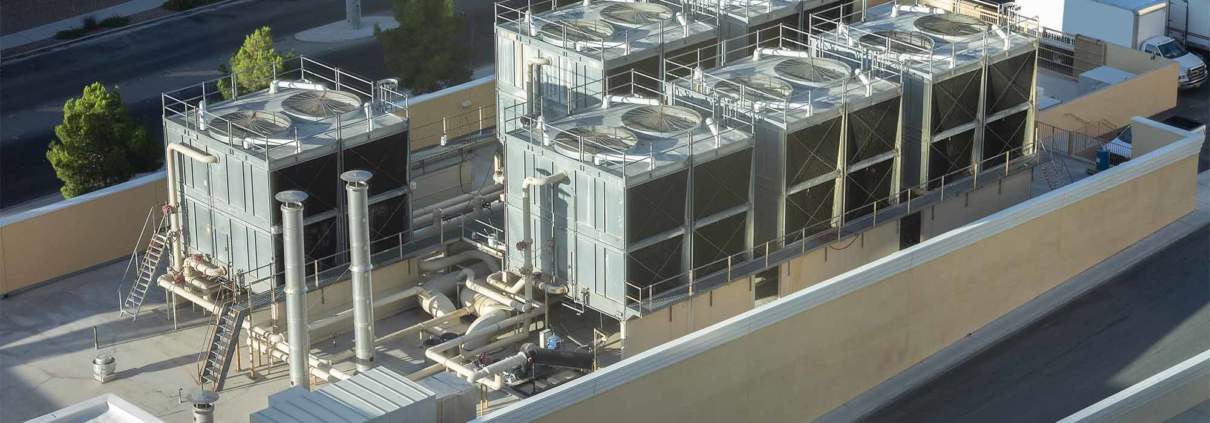Your heating, ventilation, and air conditioning (HVAC) system is responsible for cooling and dehumidifying your building. However, your HVAC would be unable to perform its cooling function without the help of the chiller. The chiller is one of the most important components of your HVAC and requires regular maintenance to extend its life expectancy.
Improving Air Cooled Chiller Life Expectancy
Think about the equipment you commonly use throughout your facility. Since you use that hardware frequently, you likely perform regular maintenance to keep it operational. The same should be true for your chiller. Although you may not see it every day like your other equipment, it’s frequently used to keep your building comfortable.
The typical life cycle of a chiller depends on its type. On average, an air-cooled chiller’s lifespan is anywhere from 15 years to 20 years. A water-cooled chiller is normally closer to 20 to 30 years. Where your chiller is located and the conditions it’s under can also affect its life expectancy. Prolong the life of your equipment by keeping it healthy with chiller predictive maintenance. Here is a chiller maintenance checklist that can help.
Take Daily Notes
The first step to keep ensuring your chiller is working optimally is to establish a historical record of trends in equipment operation. A historical record will allow you to see operational conditions such as temperatures, pressures, fluid levels, and flow rates. It will also help you keep track of anomalies that may lead to the need for parts repairs or replacements.
Treat Condenser Water
One of the biggest risks facing your chiller is corrosion. The water in your system makes it prone to scale, corrosion, and algae growths. To eliminate these factors, you’ll need to add water treatment chemicals to the water. It’s important to inspect chilled water loops and piping once a year or more.
Keep Tubes Clean
For your chiller to work properly, heat transfer needs to happen. Your chiller works by using a cooling fluid—called refrigerant—that absorbs the heat in the air, effectively chilling it, before pushing the air out of the vent. To get rid of the heat that was absorbed, the refrigerant is pushed into a tube called the evaporator, which allows the fluid to release the absorbed heat so it can be reused. This process is known as heat transfer.
The dirtier your tubes are, the less efficient heat transfer is. As a result, your system will have to work harder to cool your building. That added stress can cause unwanted wear and tear, which could lead to breakdowns in the future.
Adjust the Flow Rate
This is something that’s easy to miss, but the flow rate of chilled water can cause trouble. If the flow is too low, it can reduce the efficiency of your system. If the flow is too high, it can cause damage to the equipment. Ideally, the flow rate should be kept between 3 to 12 feet per second.
Check Refrigerant Levels
Like the oil in your car, refrigerant needs to be kept at a certain level for a chiller to work properly. Each system is unique and has a manufacturer-required amount for optimal function. If the level of refrigerant drops below a certain amount, it can damage the condenser tube. The levels should be checked regularly. If you discover your system is low on this fluid, check for leaks or other issues that could cause your system to lose refrigerant.
Analyze Compressor Oil
The condition of your compressor oil can reveal underlying problems with your unit. It’s recommended that you collect a sample of your oil and send it to a laboratory to be analyzed once a year. If an issue is found, the oil will need to be replaced.
A&G Services Can Keep Your Chiller Running
At A&G Services, we specialize in mechanical solutions. Our technicians can keep your chiller up and running with preventive maintenance. Our service agreement plans guarantee that your equipment gets the appropriate and timely chiller maintenance your system needs. We perform everything from brushing tubes to analyzing your oil.
To learn more about how A&G can help your business, contact us today to schedule an appointment.




